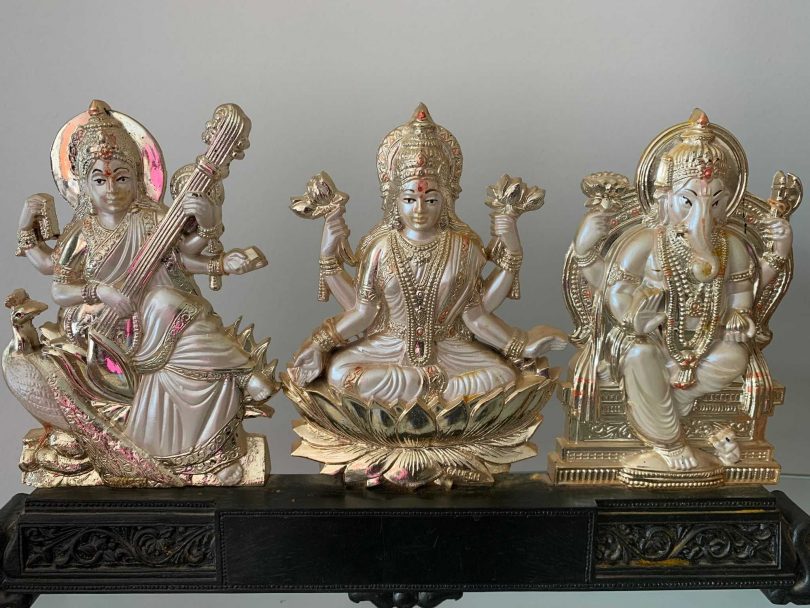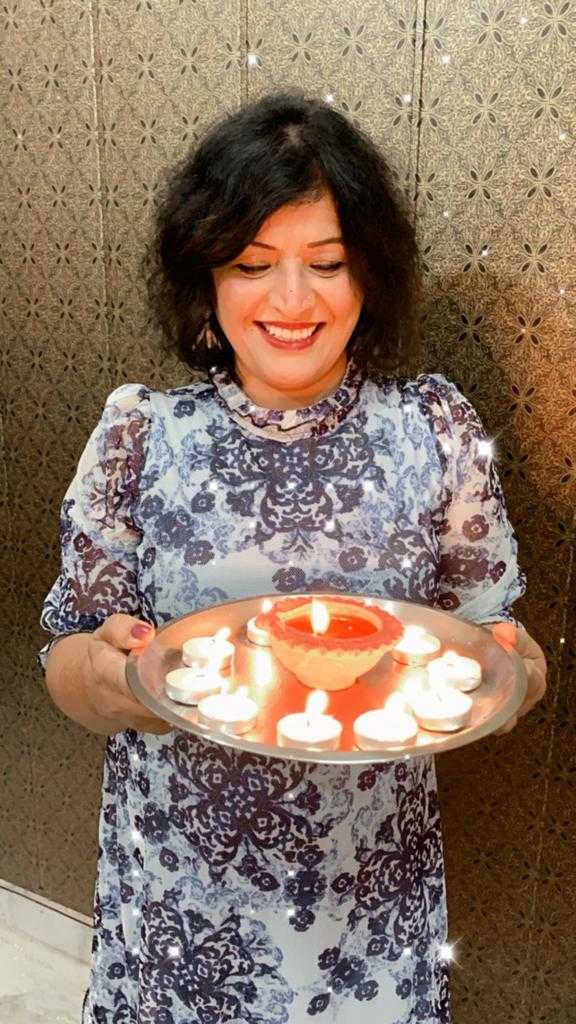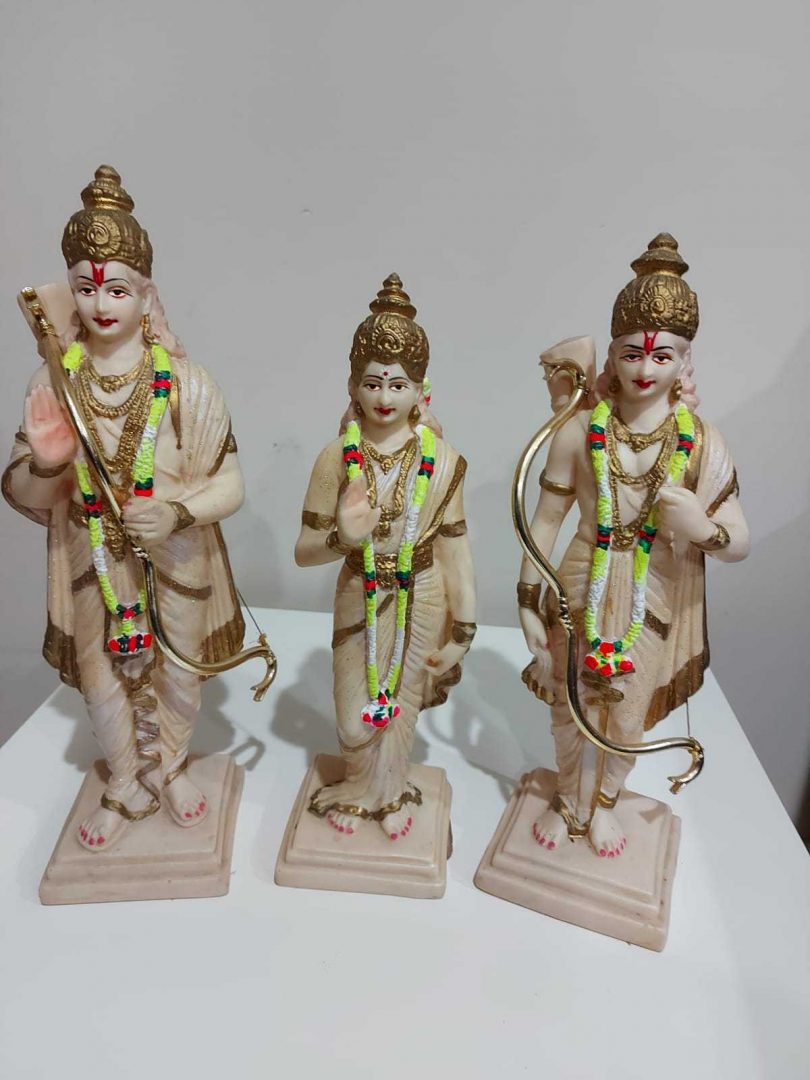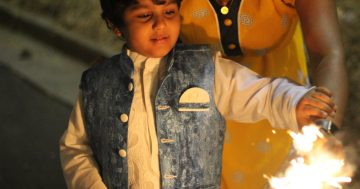
Goddess Saraswati, Goddess Lakshmi and Lord Ganesha. Photo: Sunita Dhindsa.
It is an exciting time in Canberra as COVID-19 lockdown is lifting and restrictions are finally easing. It is even more exciting for people of Indian origin all across the world because Diwali, one of the most anticipated festivals, is coming soon.
Diwali is celebrated not only in India, but in many countries that have a historical Indian connection. The festival lights up the earth and the sky, and turns the dark nights into day.
Lights, decorations, house cleaning, food, sweets, fireworks, rituals, prayers and gifts imbue the excitement of celebration.
Diwali – or Deepawali or Divali – is celebrated on the 13th-14th day in the lunar month of Kartik Masa (October or November) on the darkest night (amavasya). This year, Diwali falls on Thursday, 4 November, and the festival will be held from 2-6 November.
The festival of lights transcends countries and religion, and transforms houses into a glittering, welcoming abode, both for gods and humans.
Diwali reminds us of the need to strengthen the divinity in us and to destroy the evil forces lurking within to enable us to follow the path of righteousness.
Spiritually, Diwali is about illuminating our minds and hearts, and dispelling ignorance, such as the lighted diya (a small clay oil lamp), in which we pour the oil of love and light it with the wick of knowledge and truth.

Anju with lighted diya and candles for Diwali. Photo: Sunita Dhindsa.
Awareness and awakening of inner light helps us understand that life is a continuous journey for truth, knowledge and for discovering our infinite potential.
Diwali has ancient origins in mythology and in the seasonal harvesting of the kharif crop.
The five-day Diwali festival begins with Dhanteras, when houses get cleaned and decorated.
The second day is Naraka Chaturdashi, Kali Chaudas or Choti Diwali, and is celebrated with morning religious rituals.
The third day is Lakshmi Pooja, the darkest night and the main day of Diwali celebrations when Goddess Lakshmi visits her devotees and bestows them with gifts and blessings of health and wealth. According to mythology, the Goddess visits the cleanest house first.
The third day also includes worship of Mahalakshmi (goddess of wealth and money), Mahasaraswati (goddess of books and learning), Mahakali (goddess of destruction and universal power), Lord Ganesha (Vighneshvara, master and destroyer of obstacles), and Lord Kubera (treasurer of gods).

Lord Rama, Mother Sita and Lakshman. Photo: Sunita Dhindsa.
On the fourth day, some people worship the holy mountain of Govardhan and some celebrate Balipratipada, which marks the victory of Vamana, the fifth incarnation of Lord Vishnu over Mahabali and all asuras, and return of Mahabali to earth.
The fifth and last day is celebrated by some as Bhai Dooj, and by others as Vishwakarma Pooja.
With COVID-19 restrictions easing, Diwali is an opportunity to spread happiness, light and love across the globe.
Across Australia, there will be many Diwali celebrations by various communities and groups organising events of all sizes.
For greater insight and joy, join an Indian origin family to enjoy Diwali celebrations.
No matter how and where Diwali is celebrated, it brings people together and helps spread joy. Using the lamp of love and knowledge, let us lead ourselves out of darkness to light (Tamasao ma jyotirgmaya) and help others to light the lamp of happiness, prosperity and knowledge.
















